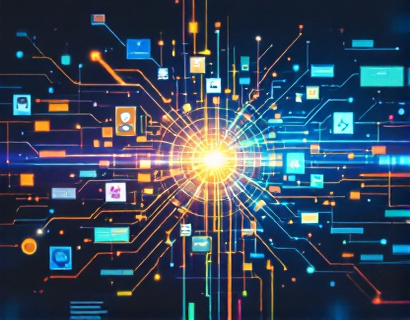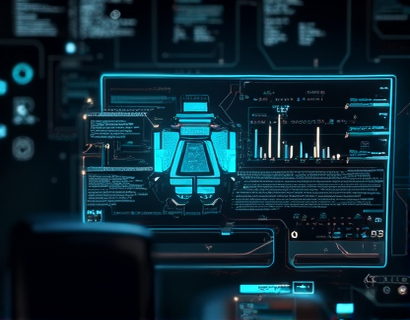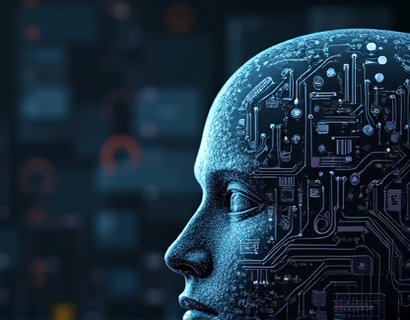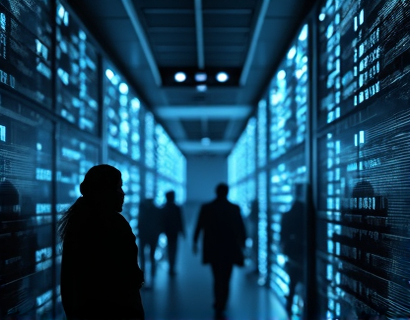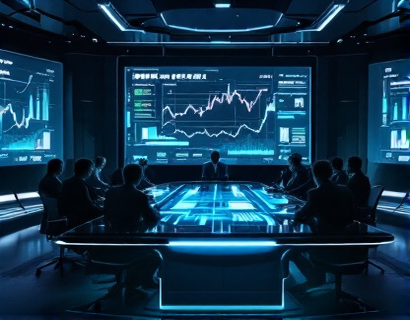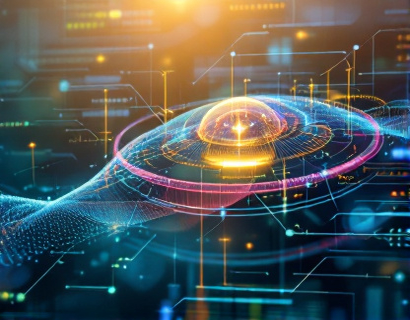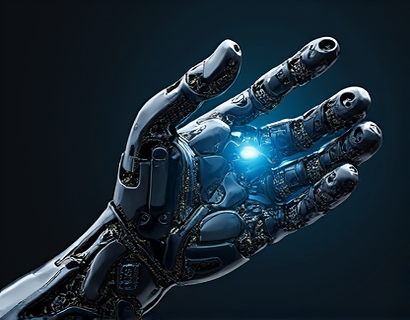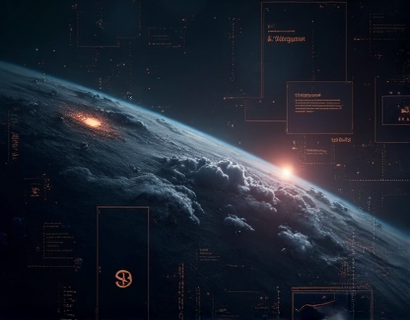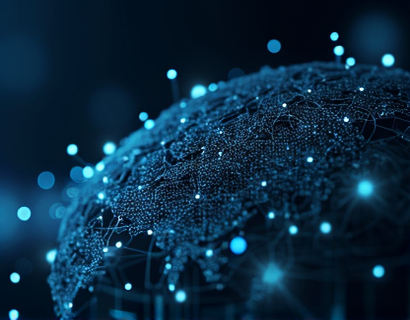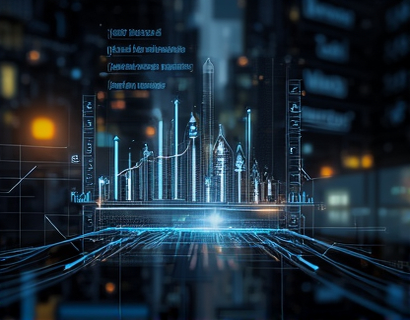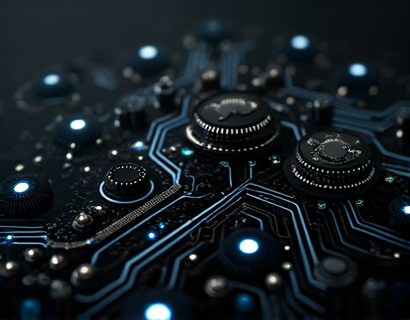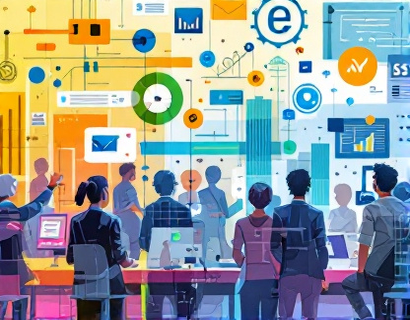Decentralized Productivity Revolution: Harnessing AI and Crypto for Enhanced Digital Solutions
The digital age has ushered in a new era of productivity and innovation, driven by the convergence of artificial intelligence (AI) and cryptocurrency. This revolution is not just about enhancing existing processes but fundamentally transforming how we approach work, collaboration, and task management. By merging these two powerful technologies, we can create decentralized systems that offer unprecedented levels of efficiency, security, and user empowerment. This article explores the transformative potential of this fusion, providing insights for tech enthusiasts and professionals alike.
The traditional centralized models of productivity and task management are being challenged by decentralized alternatives. These new systems leverage blockchain technology to create transparent, secure, and tamper-proof environments. Blockchain's inherent properties ensure that data is immutable and accessible only to authorized parties, reducing the risk of fraud and enhancing trust among users. This shift towards decentralization is crucial for building robust and resilient digital ecosystems.
AI, on the other hand, brings intelligent automation and advanced analytics to the forefront. Machine learning algorithms can process vast amounts of data to identify patterns, predict trends, and optimize workflows. When combined with blockchain, AI can operate within a decentralized framework, enabling smarter and more autonomous systems. This synergy not only enhances productivity but also opens up new possibilities for innovation and collaboration.
Enhancing Productivity Through Decentralized AI Solutions
One of the key benefits of decentralized AI solutions is the ability to distribute computational tasks across a network of nodes. This approach, known as decentralized computing, allows for the efficient handling of complex computations without the need for centralized servers. By leveraging the collective power of multiple devices, these systems can process large datasets and run sophisticated algorithms more quickly and cost-effectively. This distributed approach also enhances scalability and reliability, as the system can adapt to varying loads and continue functioning even if some nodes fail.
For instance, decentralized cloud computing platforms enable users to access powerful computational resources without the overhead of maintaining physical infrastructure. These platforms use smart contracts to automate resource allocation and payment processes, ensuring fair and transparent usage. AI-driven optimization algorithms further enhance the efficiency of these platforms by dynamically adjusting resource allocation based on real-time demand, reducing waste and improving performance.
Simplifying Task Management with Decentralized Tools
Task management is a critical aspect of productivity, and decentralized tools are revolutionizing how we organize and collaborate on projects. Traditional project management software often relies on centralized servers, which can become bottlenecks and single points of failure. Decentralized alternatives, however, distribute data and functionality across a network, ensuring that tasks and workflows remain accessible and secure.
Decentralized task management platforms use blockchain to create immutable records of tasks, assignments, and progress. Smart contracts automate workflows, triggering actions based on predefined conditions. For example, a task can be automatically marked as completed once the associated smart contract conditions are met, eliminating the need for manual intervention. This automation not only saves time but also reduces the risk of human error.
Moreover, these platforms often incorporate AI to enhance their functionality. AI-powered chatbots and virtual assistants can help users manage their tasks more effectively by providing personalized recommendations, reminders, and insights. Natural language processing (NLP) enables users to interact with these tools using natural language, making the experience more intuitive and user-friendly.
Security and Privacy in Decentralized Systems
Security and privacy are paramount in any digital solution, and decentralized systems offer significant advantages in these areas. By design, blockchain technology ensures that data is encrypted and distributed across multiple nodes, making it extremely difficult for unauthorized parties to access or alter. This decentralized nature also means that there is no single point of failure, reducing the risk of system-wide breaches.
AI plays a crucial role in enhancing the security of decentralized systems. Machine learning algorithms can detect and respond to anomalies in real-time, identifying potential threats and taking proactive measures to mitigate risks. For example, AI can monitor network activity for unusual patterns that may indicate a cyberattack, triggering alerts and automated defenses to protect the system.
Privacy is another area where the combination of AI and blockchain shines. Zero-knowledge proofs and other cryptographic techniques allow users to verify transactions and data without revealing sensitive information. AI can further enhance privacy by anonymizing data and ensuring that only authorized users have access to specific information. This creates a secure environment where users can collaborate and share data with confidence.
Decentralized Marketplaces and Economic Incentives
Decentralized marketplaces powered by AI and cryptocurrency are transforming how value is created and exchanged. These platforms use blockchain to create transparent and trustless environments where buyers and sellers can transact directly, without intermediaries. Smart contracts automate the exchange process, ensuring that transactions are executed only when predefined conditions are met. This reduces friction and costs, making the marketplace more efficient.
AI enhances these marketplaces by providing advanced matching algorithms that connect users with the most suitable partners. Machine learning models analyze user behavior, preferences, and performance to recommend optimal matches, increasing the likelihood of successful transactions. Additionally, AI-driven analytics can help users gain insights into market trends and optimize their strategies.
Cryptocurrency plays a vital role in these decentralized marketplaces by serving as a medium of exchange. Digital currencies offer faster, cheaper, and more secure transactions compared to traditional payment methods. They also enable microtransactions, allowing for more granular and flexible economic interactions. The use of stablecoins and other cryptocurrency assets further stabilizes value and facilitates global trade.
Challenges and Considerations
While the potential of decentralized AI and cryptocurrency solutions is immense, there are several challenges and considerations to address. Scalability remains a significant issue, as blockchain networks can struggle to handle high volumes of transactions. However, ongoing developments in layer 2 solutions and sharding techniques are addressing these concerns, promising greater scalability in the future.
Interoperability is another critical aspect. For decentralized systems to reach their full potential, they need to seamlessly integrate with existing infrastructure and other decentralized platforms. Standardization efforts and cross-chain technologies are essential to achieve this interoperability, enabling a more connected and cohesive digital ecosystem.
Regulatory challenges also need to be navigated carefully. As decentralized systems operate across borders, they must comply with various legal frameworks and regulations. Collaboration between stakeholders, including policymakers, developers, and users, is crucial to create a regulatory environment that fosters innovation while protecting users and maintaining integrity.
Future Outlook
The future of decentralized productivity solutions is bright, with ongoing advancements in AI and blockchain technology paving the way for even more innovative applications. As these technologies mature, we can expect to see more sophisticated and user-friendly tools that further enhance productivity and collaboration. The integration of AI with other emerging technologies, such as the Internet of Things (IoT) and augmented reality (AR), will open up new frontiers for decentralized innovation.
For tech enthusiasts and professionals, the intersection of AI and cryptocurrency presents exciting opportunities for research, development, and entrepreneurship. By staying at the forefront of these trends, individuals can contribute to building a more decentralized, secure, and efficient digital world. The journey ahead is filled with challenges and possibilities, but the potential rewards are immense.






